
12 minute read
NEWS@USU
Aggies Elevated from left: Riley Cochran, Jenna Mosher, Taylor Henrie, Troy Shumway, Sarah Bullen and Natalie Allen.
A Thought on Elevating
They so deserved the standing ovation they received at Utah State University’s 2016 commencement, sure they did. They helped nudge the world. They are pioneers. They faced what was once an impossible journey — and, in fact, still is in most other places, but not here, not any more — and they took that first, frightening step into the great unknown.
Sarah Bodily, program director for Aggies Elevated, an inclusive on-campus college experience for young adults with intellectual disabilities, says when they arrived on campus two years ago each of her students — a bonafide pioneer every one — was overwhelmingly timid. This was USU’s first clutch of such. They didn’t say much those first couple of days, maybe not unlike many other freshmen, really. But for these students the change wrought by the halls of academia is now felt at a deeper level than it is for most. They’ve come to realize a little more what they want to do with their lives, Bodily says, what they want to do for a job, within independent living, social arenas. Their ability to advocate for themselves is monumental, let’s not forget that, she says.
“Over the last two years each student has found their voice,” Bodily says. And what a thing to discover; imagine, will you? Imagine finding your own voice in a world not always quick to allow you access to it … or, for that matter, to any one of endless other things that are supposed to be yours.
“They may still be a bit shy,” Bodily says, “but when it comes to what they want and how they are going to get there, they now really know the resources are available to get there.”
That means so much, sure it does. It means that we at USU participated in something bigger and better than ourselves. “It’s something other universities have yet to see the vision for,” Bodily says. It means that we have six more members of the world citizenry — and 10 more up-and-comers who will be working toward the same certificate over the next couple of years — contributing to communities, applying for and receiving competitive paid employment, living independently, voting, volunteering, participating to the best of their abilities. It means they know they are in control of their lives. It means endlessly supportive parents and families can now smile their smiles and clap their hands and cry their tears and be presented their due, not just for championing their own students, but for clearing the path for all who follow.
It means, darn right, we’ll give an enthusiastic ovation to Natalie Allen, Troy Shumway, Riley Cochran, Jenna Mosher, Taylor Henrie and Sarah Bullen, of course we will.
It means that as Aggies, we’ve all been elevated.
Tickets, Please!
Each year one of the favorite events in Aggie athletics is the dinner and induction ceremony where the latest class of Utah State University’s Intercollegiate Athletics Hall of Fame is celebrated.
This year’s festivities, for the Hall of Fame’s 14th class, are scheduled to take place Friday, Sept. 2, at the Riverwoods Conference Center in Logan.
Three separate football AllAmericans, a three-time track and field All-American, a softball All-American, a former men’s basketball player and legendary NBA coach, a former football player and current contributor committed to the success and growth of Aggie Athletics, and one of the most successful men’s basketball coaches and administrators in school history comprise the latest class of Utah State University’s Intercollegiate Athletics Hall of Fame.
The eight inductees include: Deanna Earsley-Bowers, one of just seven Aggie softball All-Americans; Tom Forzani, an All-American and school-record holding wide receiver; Jim Helton, a three-time track and field All-American; Jim Hough, an All-American offensive lineman; Phil Johnson, a legendary NBA coach and former Aggie men’s basketball player; Dave Manning, an All-American offensive lineman; Steve Mothersell, a former Aggie football player and life-long contributor of Aggie Athletics; and Rod Tueller, one of the most successful head coaches and administrators in school history.
A total of 95 individuals and three teams have now been inducted into the Utah State Athletics Hall of Fame.
Located inside the Steve Mothersell Hall of Honor, the Utah State Athletics Hall of Fame gives fans the opportunity to view biographical information and watch videos on each of the inducted members. Both the Hall of Fame and Hall of Honor are located inside the Jim and Carol Laub Athletics-Academics Complex in the north end zone of Maverik Stadium.
The Utah State Athletics Hall of Fame

That’s Some Herd!
Cows at Utah State’s Caine Dairy Teaching and Research Center were recently ranked as the No. 1 college dairy herd in the nation based on herd breed age average score by Holstein World magazine.
The classification scoring system, developed by the Holstein Association USA, is known as the official herd BAA (Breed Age Average) and shows dairymen how their herd stacks up against other registered Holstein herds in the industry. The magazine uses the scores to rank dairies by size and has a special category for college dairies around the country. Caine Dairy Manager John Wallentine explained how BAA scores not only determine the quality of a dairy but also have a practical impact on management decisions. “The average dairy cow will be given a score near 100 which is pretty standard for the industry,” Wallentine said. “We are continuing a tradition of breeding for a better cow. That takes a lot of work, we have to have our employees, the veterinarian and our administrators all on board to see those scores increase.” Though the score does not specifically take management practices into account, the care animals receive is pivotal to their success. Helping a cow reach her full genetic potential through
The Hall of Fame Committee made its final selections for this year’s class in January. The inductees must fit into one of five categories: student-athlete, coach, team, athletics staff member, or contributor/special achievement. Contributor/special achievement includes individuals who have contributed to the ideal of sports at the university. Each nominee must receive at least 75 percent of the committee’s vote to be eligible for induction.
For ticket information call toll free: 1-888-USTATE-1 (1-888-878-2831), or visit utahstateaggies.com.
nutrition, environmental and health management decisions pays off when it comes time to score cows.
The Caine farm is also a valuable tool for research and education purposes. USU students gain hands-on experience by handling animals and by learning basic animal health and dairy herd management practices. In addition, many students and faculty conduct research at the dairy.
Registering the entire herd and paying to participate in the classification program is an added expense for the dairy, but one that is well worth the effort according to Wallentine. When the dairy occasionally sells animals they are now more profitable because of their improved genetics and productivity.
“People within the industry talk, especially about USU’s dairy,” said Wallentine. “We are known for having top-end genetics. This ranking shows that. It’s an achievement that we have been working toward for many years.”
— KaliCee Harrison
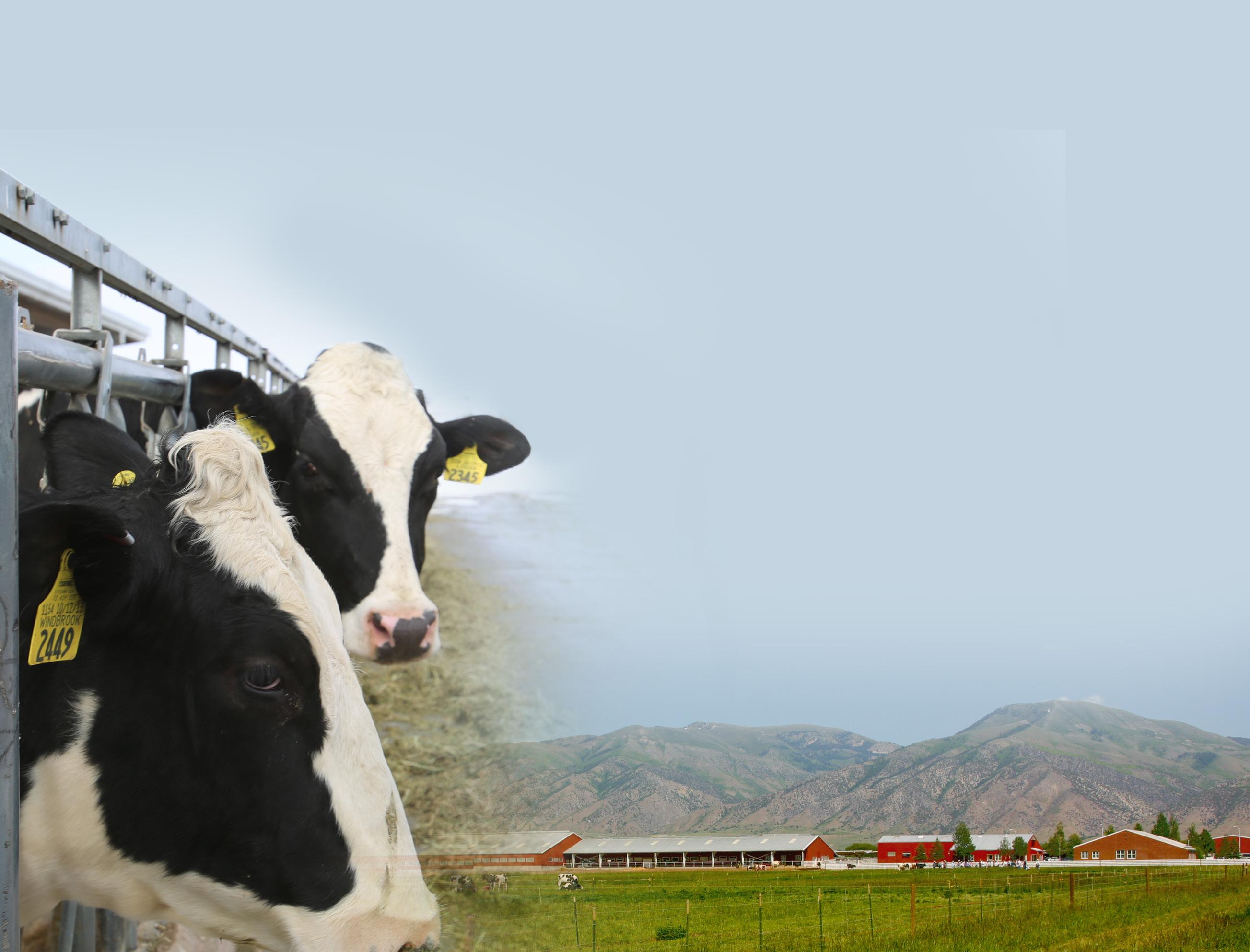
Truman Scholar Madelyn Fife says she’s infuriated by inequality and injustice. Photos by Donna Barry, university photographer.
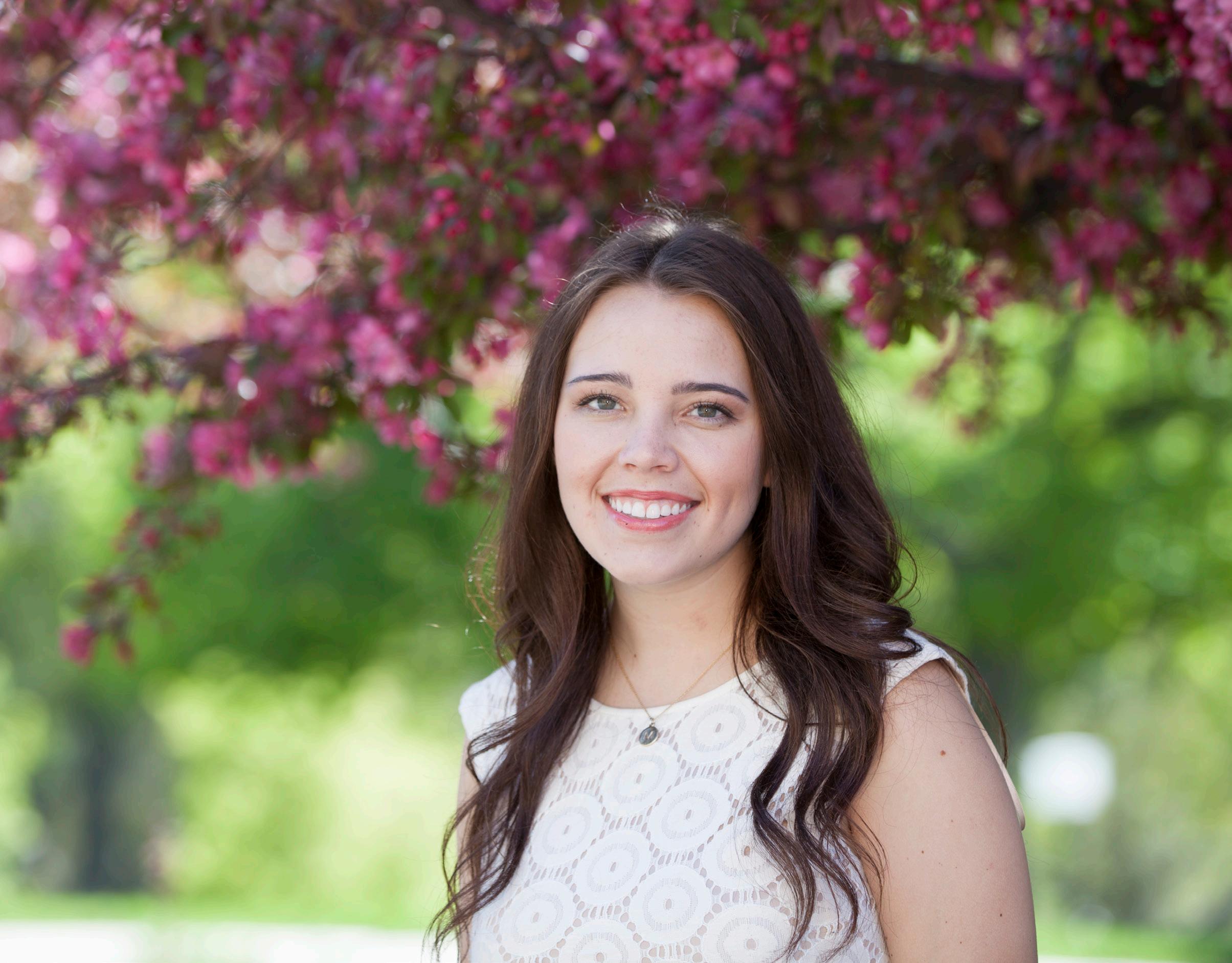
’I’M OK WITH PROVING MY MERIT’
For only the fourth time in 36 years, a Utah State University student has been selected to receive the Harry S. Truman scholarship.
Madelyn Fife, a junior in political science and economics, is one of 54 students from across the United States recently announced as a 2016 Truman Scholar. Her research about educational equity in American schools helped her win the coveted $30,000 scholarship. She competed against 775 applicants from 305 institutions, a record number of applications and institutions.
The Truman Scholarship Foundation was created by Congress in 1975 as a living memorial to the 33rd president. At the heart of the foundation is selecting and supporting the next generation of public service leaders. Over the past four decades, the Truman award has become one of the most prestigious national scholarships in the country.
It is the kind of recognition that would make any university president proud, and USU President Stan Albrecht was no exception. He got to break the news to Fife by calling her into his office. She went there under the premise she had to sign a travel authorization form. The request was unusual, but since it was coming from Kristine Miller, director of USU Honors Program, Fife dutifully complied.
“I totally believed them,” she said. “I didn’t think they were going to take me in the president’s office and tell me I won. Wow! I am still trembling.”
No pressure though, except for maybe that little declaration Miller made at the onset of her introduction to the president.
“She wants to change the world,” Miller told Albrecht. “She wants to and she’s going to.”
That is a tall order, but within a few minutes of listening in on Fife’s conversation with the president as she talked about her project’s focus on using disparate impact theory to enforce anti-discrimination laws in public schools, one realized the plausibility of Miller’s prediction.
Months earlier, Miller spoke in similar glowing terms of Briana Bowen who, in
2013, was the first USU female student awarded the Truman Scholarship and the first recipient in 29 years. Both these young women exude quiet confidence and tremendous passion for making a real difference in the world, which also happens to be a cornerstone statement of the Truman Foundation. Today Bowen is studying Russian and East European studies at Oxford University, a path that will eventually lead to work in national security.
The 21-year-old Fife has had her eye on law ever since she graduated from Logan High School in 2013. Her plan is to become an attorney at the U.S. Department of Justice where she will focus on the intersection of law and education. She wants to be on the front line of change in the way schools discipline students.
Her own anecdotal experiences in high school sparked her interest in school discipline reform. She noticed by her senior year that many of the Hispanic classmates who started high school with her were no longer attending. Their absence raised some red flags. Only later did she learn that school suspensions and expulsions are linked to students dropping out altogether. The numbers alone seemed too great to be coincidental.
“Broadly, I get infuriated, whether it’s blatant or more unintentional in nature, to see inequality and injustice,” she said. “It makes your palms tingle. You want to do something.”
It was early on at USU that Fife began her research. She started looking up Civil Rights Data Collection numbers on her own high school after learning that federal law mandates equality in how students are treated in public schools. What she saw were clearly different outcomes for students on the basis of race under the school’s disciplinary procedures. As she further delved, she found the problem to be systemic and widespread among minority groups across the nation, and much of it tied to zero-tolerance policies.
“We want people to go to school and have an education and be productive members of society,” she said. “We don’t want them pushed toward crime, drugs and substance abuse. I don’t think administrators are out to get any specific group, but this is happening and something needs to be done. We need to look for a less exclusionary approach to discipline and more ways to keep kids in school.”
In the meantime, she is doing all she can mentoring and tutoring underrepresented high school students. On top of this, she keeps busy as an Honors Program student, Huntsman Scholar and a Jon M. Huntsman School of Business Ambassador. She serves on the USU Student Advisory Board for the Institute of Government and Politics, and is a research assistant in political science and a teaching assistant for the Huntsman School of Business.
“We’re very proud of you,” Albrecht told her. “This is a great accomplishment, and it is an honor for the university as well.”
Miller, who helped guide Fife through the arduous preparations and interviews leading up to the award, called Fife an exemplary USU Honors student.
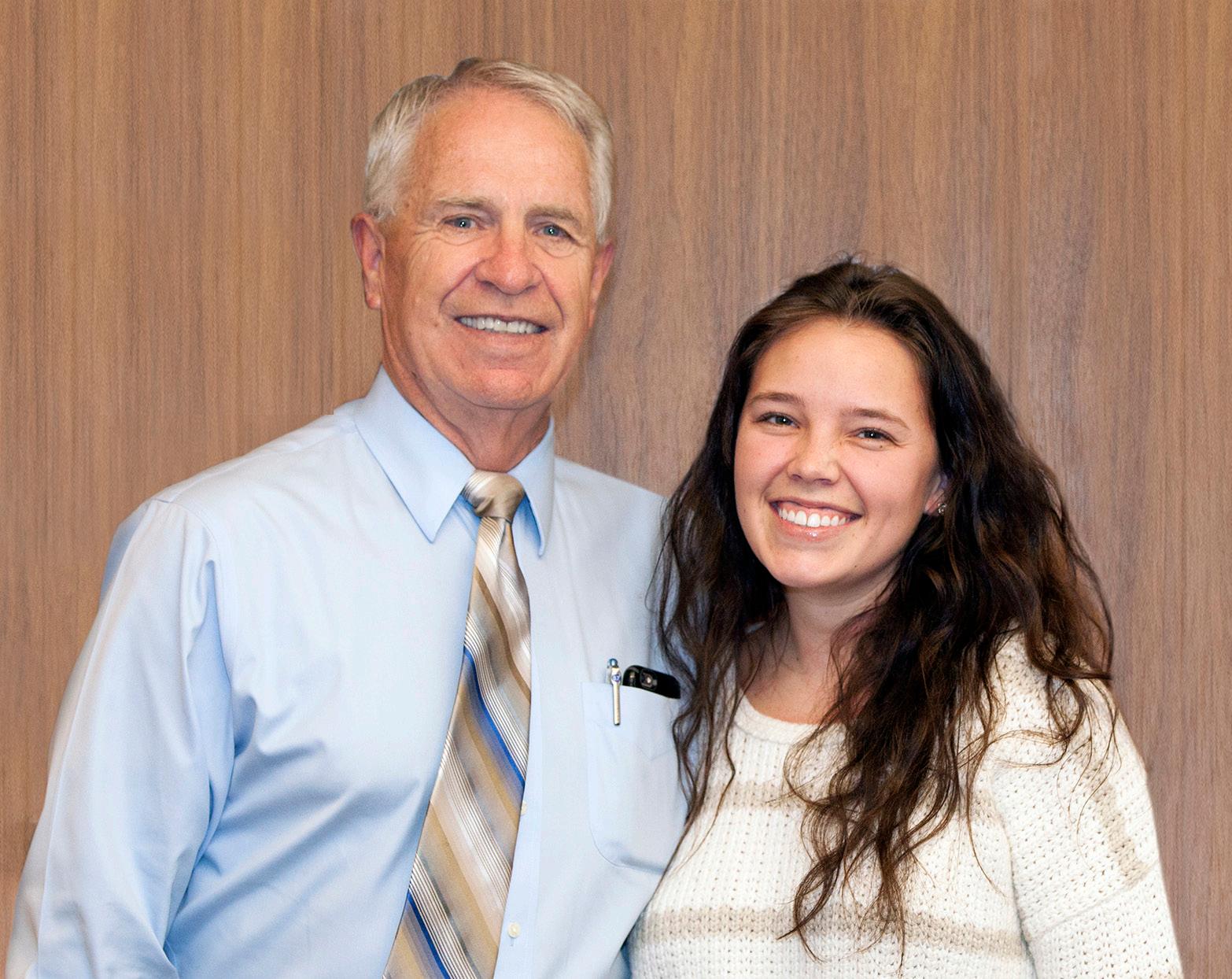
Fife with Pres. Stan Albrecht at the surprise announcement in his office.
“Her double major demonstrates an ability to think deeply and critically across disciplines, and her research about educational equity in American schools is both insightful and civically engaged,” Miller said. “As an articulate, thoughtful young scholar who is truly committed to making the world a better place, she embodies the principles of public-service leadership that are central to the Harry S. Truman Scholarship.”
And just like Truman, who rose from the status of underdog to victor in the 1948 U.S. presidential campaign, Fife said she also relishes the role as a Truman Scholar representing Utah State University.
“People don’t realize how much USU has to offer its students and because of that you may be an underdog until you show people who aren’t familiar with the university that you are competent,” she said. “And I’m OK with being an underdog and proving my merit to people.”
And along the way, changing the world.
— John DeVilbiss
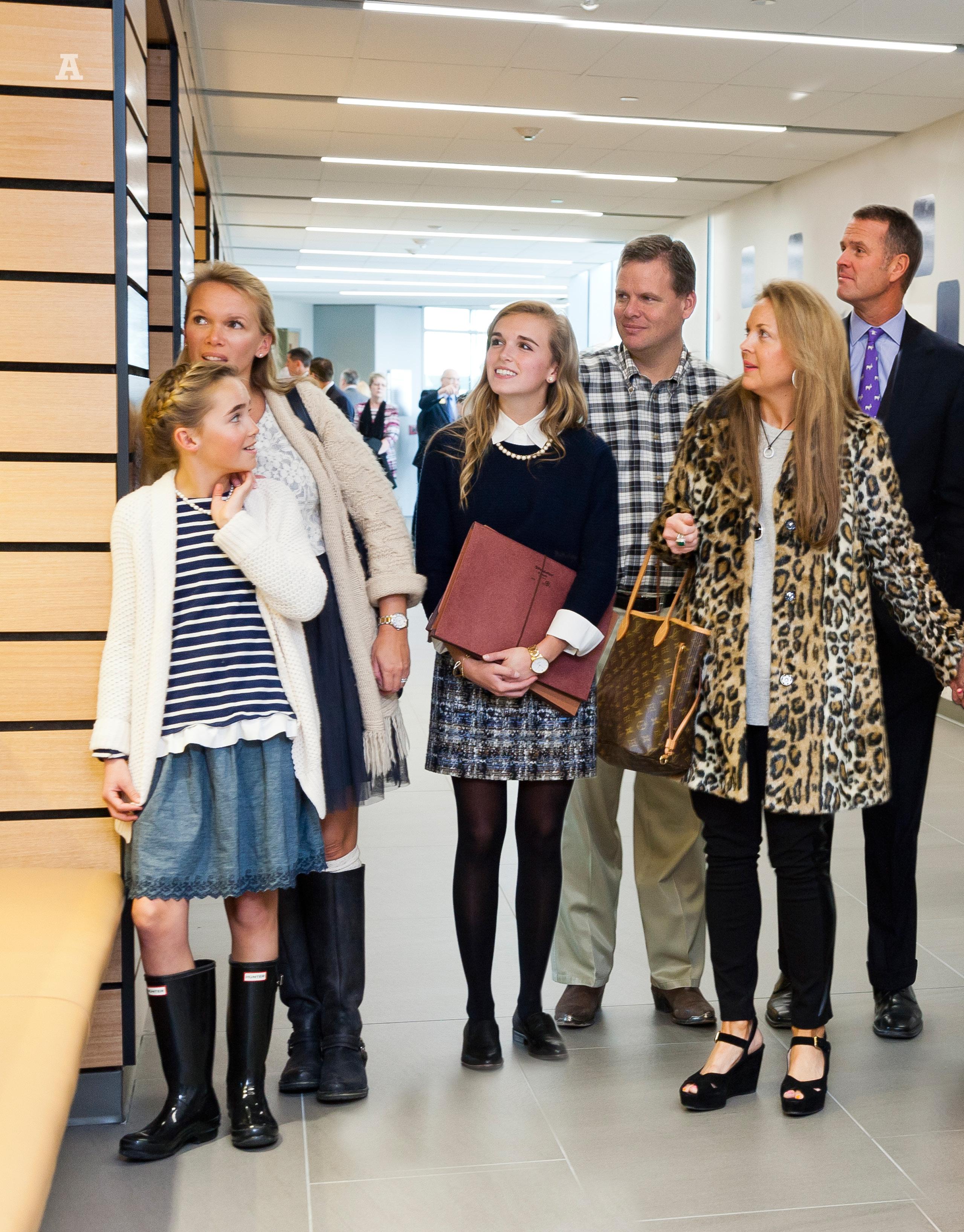
Jon M. and Karen Huntsman and family enjoy a tour of Utah State University’s sparkling new Huntsman Hall at its official opening this spring. Photo courtesy of Emily Beus ’08.
Celebrating New Light
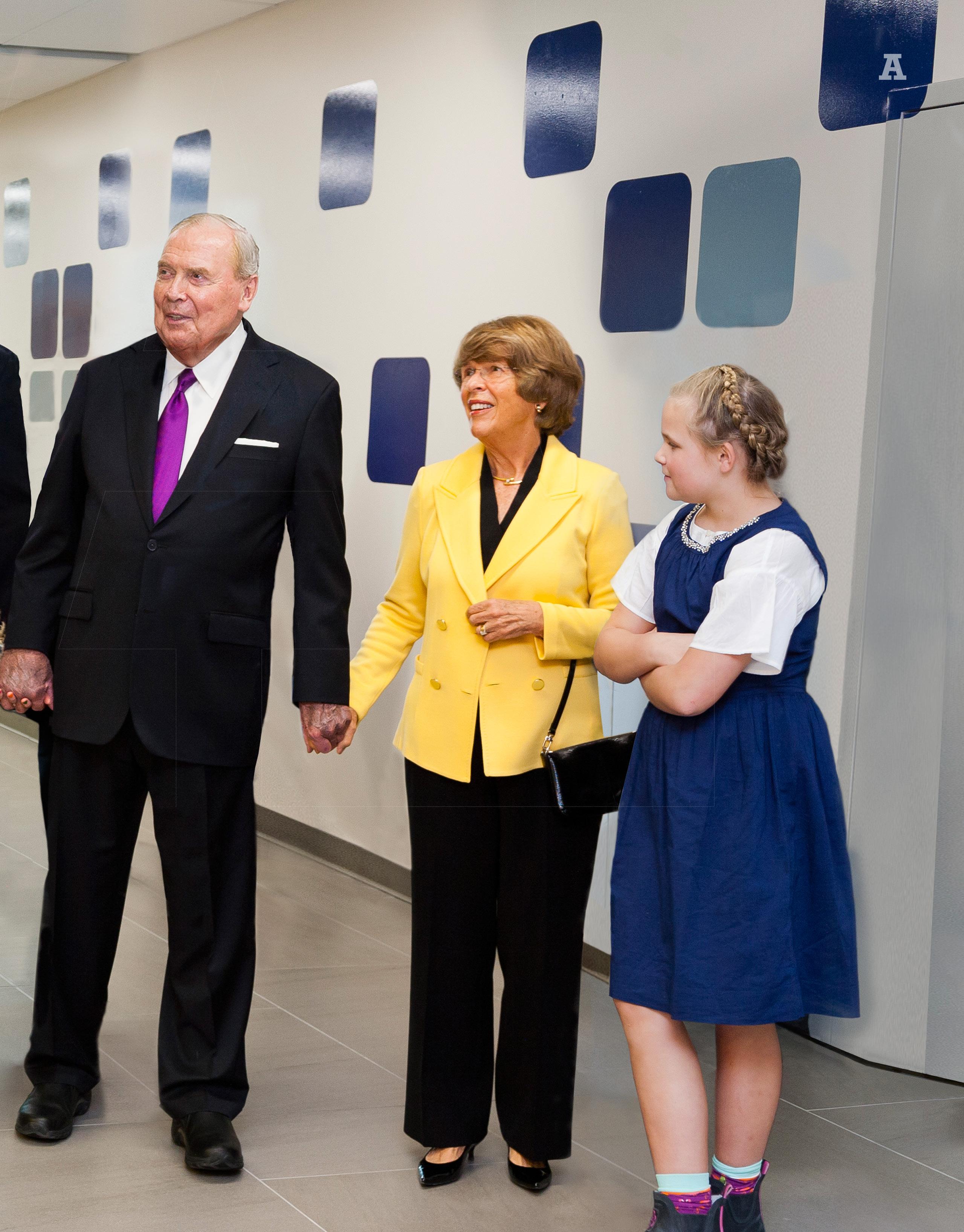
“As I walk through Huntsman Hall, I can feel the transformative impact this beautiful facility will have on generations of students. The thoughtful design, incorporating light and the incomparable beauty of Cache Valley into virtually every corner, creates an inviting and welcoming space.”
Excerpted from Dean Douglas D. Anderson’s opening message in this spring’s special issue of Huntsman Alumni Magazine, to which, we think, every proud friend of Utah State University ought to be treated. https://huntsman.usu.edu/news/magazine/spring2016index
The special issue shares the stories and photos that blossomed everywhere during the official opening of Huntsman Hall in early May.




